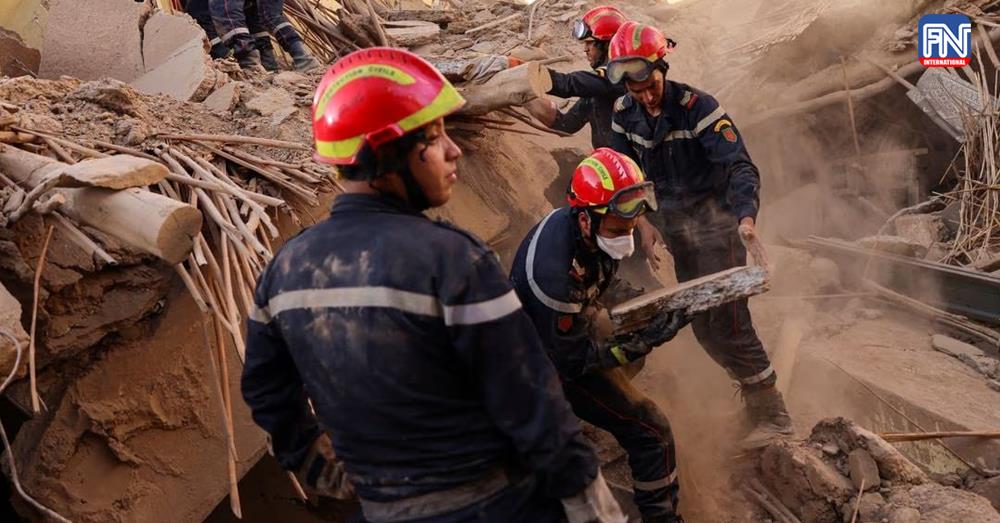MOULAY BRAHIM, Sept 10 (Reuters) - Survivors of Morocco's deadliest earthquake in more than six decades struggled to find food, water and shelter on Sunday as the search for the missing continued in remote villages and the death toll of more than 2,100 seemed likely to rise further.
Many people were spending a third night in the open after the 6.8 magnitude quake hit late on Friday. Relief workers face the challenge of reaching the worst-affected villages in the High Atlas, a rugged mountain range where settlements are often remote and where many houses crumbled.
The death toll climbed to 2,122 with 2,421 people injured, state TV reported. Morocco said it may accept relief offers from other countries and will work to coordinate them if needed, according to state TV.
The damage done to Morocco's cultural heritage became more evident as local media reported the collapse of a historically important 12th century mosque. The quake also damaged parts of Marrakech old city, a UNESCO World Heritage site.
With many homes built of mud bricks and timber or cement and breeze blocks, structures crumbled easily. It was Morocco's deadliest earthquake since 1960 when a quake was estimated to have killed at least 12,000 people.
In the badly hit village of Amizmiz, residents watched as rescuers used a mechanical digger on a collapsed house.
"They are looking for a man and his son. One of them might still be alive," said Hassan Halouch, a retired builder.
The team eventually recovered only bodies.
The army, mobilised to help the rescue effort, set up a camp with tents for the homeless. With most shops damaged or closed, residents struggled to get food and supplies.
The quake's epicentre was 72 km (45 miles) southwest of Marrakech, a city beloved by Moroccans and foreign tourists for its medieval mosques, palaces and seminaries richly adorned with vivid mosaic tiling amid a labyrinth of rose-hued alleyways.
The government said on Sunday it has set up a fund for those affected by the earthquake. The government has also said it is reinforcing search-and-rescue teams, providing drinking water and distributing food, tents and blankets. The World Health Organization said more than 300,000 people have been affected by the disaster.
Spain said 56 officers and four sniffer dogs have arrived in Morocco, while a second team of 30 people and four dogs was heading there. Britain said it was deploying 60 search-and-rescue specialists and four dogs on Sunday, as well as a four-person medical assessment team. Qatar also said its search-and-rescue team departed for Morocco.
U.S. President Joe Biden expressed his "sadness about the loss of life and devastation" caused by the quake.
"We stand ready to provide any necessary assistance to the Moroccan people," Biden told a news conference in Hanoi, Vietnam.
A U.S. official said a small team of disaster experts dispatched by the United States arrived in Morocco on Sunday to assess the situation.
France said it stood ready to help and was awaiting a formal request from Morocco.
Other countries offering assistance included Turkey, where earthquakes in February killed more than 50,000 people. By Sunday, the Turkish team had not yet departed.
